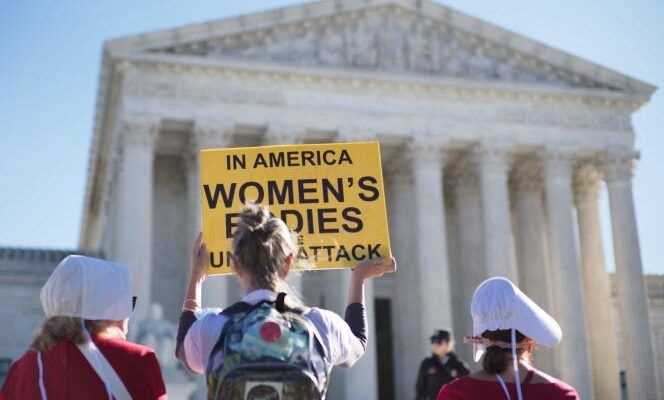Signed in May by Republican Governor Greg Abbott, the Texas abortion law came into effect in early September. It is not only repressive, prohibiting the procedure beyond six weeks of pregnancy. By its novel methods and its dizzying implications, it was destined to end up before the Supreme Court. Monday 1er November, the nine magistrates examined two complaints which did not relate to the right to abortion itself, but to the possibility of challenging Texan legislation in court. Meanwhile, clinics in Texas have drastically reduced their operations and pregnant women often resort to interventions in neighboring states. The magistrates call it “The chilling effect” of the law.
After three hours of exciting debate, it was not clear on Monday whether the court was ready to reverse its own position, taken in early September, and suspend the application of Texas law. On the other hand, a majority seemed to emerge, over the questions, in favor of the possibility left to associations to challenge this legislation before the Texan courts. It is only one part in a long battle, with multiple episodes. The coming months promise to be explosive, as the Conservatives dominate the Supreme Court (six to three).
Texas law prohibits voluntary termination of pregnancy (abortion) from the moment the embryo’s heartbeat can be detected, approximately six weeks. Almost a general ban: between 85% to 90% of abortions concern a pregnancy that has reached beyond this period. The law is intended to be a powerful deterrent. It makes no exceptions for rape or incest. Above all, it delegates the responsibility for its application to the citizens. The latter are called upon to denounce in court any person having contributed to an abortion, directly (doctor, nurse) or very indirectly (the taxi or bus driver who would take the patient to the clinic). This denunciation can bring up to 10,000 dollars (8,600 euros) for each supposed “accomplice”. Another astounding aspect of the legislation: it is not for the plaintiff to provide proof of the alleged offense, but for the defendant to defend himself against it. If the latter is found guilty, he will also have to reimburse the plaintiff’s legal costs.
An “extraordinarily dangerous” law
An Austin judge had imposed the suspension of this law in early October, stressing that “Women have been illegally prevented from exercising control over their lives in ways protected by the constitution.” But another magistrate, on appeal, overturned this decision. Highest appeal court, the Supreme Court refused to block the 1er September Texas law enforcement. The next day, Joe Biden posed as the first reproductive rights advocate, posting a dry release on this “Unprecedented attack” against women, “Releasing unconstitutional chaos”. Evoking a ” fault “ of the Supreme Court, the president announced the will of the federal state to challenge the Texan legislation in the courts. The justice department has been mobilized. On Monday, Elizabeth Prelogar, the new government representative (solicitor general) to the Court, ruled that Texas law was “Extraordinarily dangerous for [la] constitutional structure “ and that the government “Has a sovereign interest in defending the supremacy of federal law”. But some conservative judges appeared to doubt the legitimacy of such federal intervention.
You have 35.64% of this article left to read. The rest is for subscribers only.
